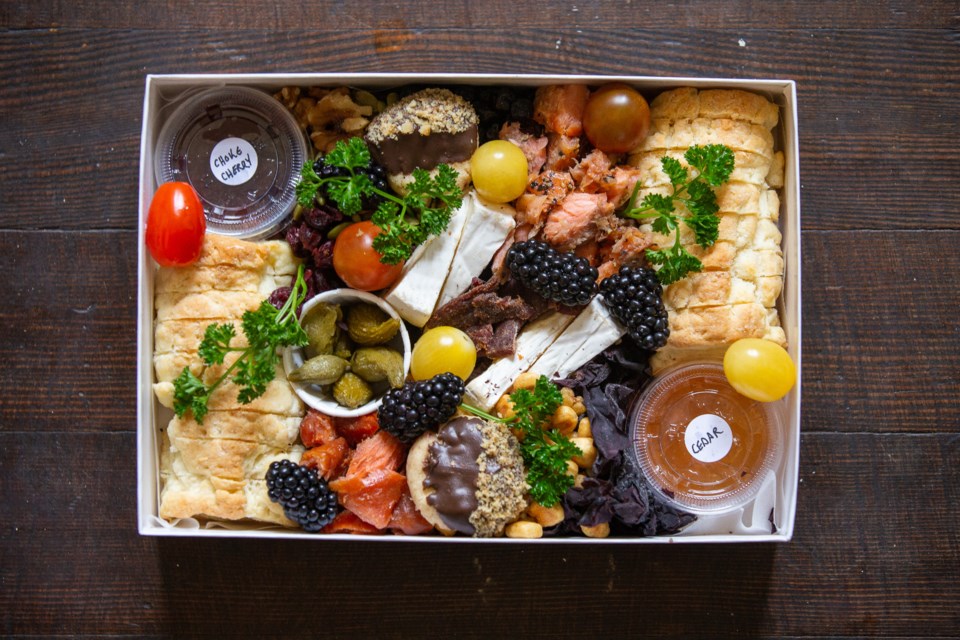Tawnshi means "hello" in Michif, the language of the Metis.
It is also the name of a new Indigenous-owned charcuterie delivery service based in Vancouver. boxes are filled with foraged seasonal ingredients, cured meats, cheeses, preserves and baked goods that celebrate Indigenous culture and connection to the land.
Partners in life and business Marina LeClair and Trevor Jansen, self-identified consummate hosts and real foodies, founded the business last year after COVID interrupted their work and social connections.
"Our place was a central hub for social gatherings. We loved connecting conversations over great food," they share with V.I.A. over email.
LeClair is Metis, from the Red River settlement in Manitoba, with a background in hospitality and the service industry and Jansen comes from the Gitksan Nation in northern B.C. and has over 15 years of experience in business, marketing, and content creation.
LeClair had been dreaming of starting her own hospitality business and when the pandemic put both her and Jansen out of work and she says they had a lot of time to think about what to do next.
"We knew a few things: we wanted to create our own business, we wanted to make our families proud, and we wanted to honour our heritage," she explains.
Looking at the growing food delivery market, the pair noticed a gap in Indigenous representation. "All the charcuterie boards were very Euro-centric," they say. "There were lots of options but no real choices. The idea of an Indigenous charcuterie box was fresh and new to the market."
While Tawnshi boxes include culturally significant dishes like cured salmon and bannock there is also an emphasis on education. Every box comes with a QR code to scan and learn more about the ingredients and how to properly enjoy them.
There are five box options to choose from including personal and share sizes and a bannock and cookie box. No two are exactly the same and will change with the seasons or as new Indigenous products are discovered but people can expect fresh fruits and vegetables, assorted jellies, dulce (also known as sea bacon), cheeses, pickled preserves, and nuts.
As they've built the business, LeClair and Jansen share that one of their favourite things to hear is that the boxes are conversation starters. "People open up about their connections to Indigenous people, places, and heritage in their lives."
Jansen and LeClair say their charcuterie business "represents an invitation to look back and appreciate indigenous culture. It is also a way to look forward, through conversations over food."





